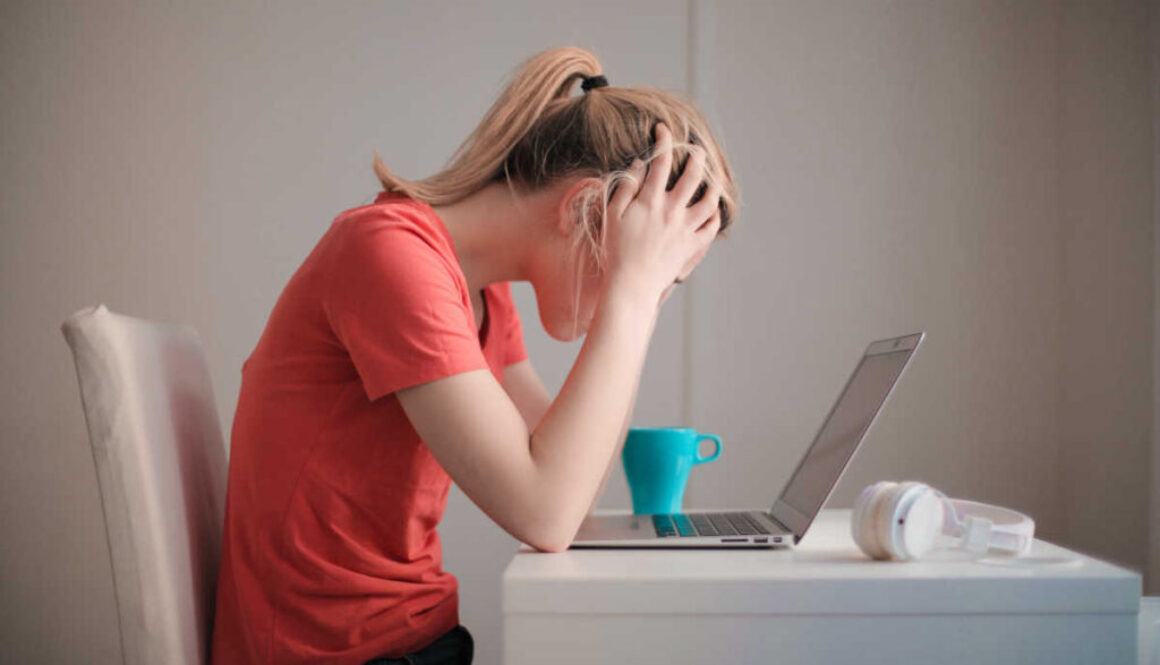Natural Tools To Help With Anxiety
If you are like so many people these days, you might sometimes feel anxious, overwhelmed, or feel like you can’t move forward with your goals and life. We have so many triggers for these types of emotions in our over stimulated world. Our new world, filled with so much information in the news and social media bombarding us constantly is the biggest cause in many opinions. Combining that with our need to be using technology constantly for work as well as pleasure just never gives us a break.
In my practice I see especially teens and young adults who suffer from these debilitating issues the most which can manifest in so many ways such as insomnia, digestive issues and bad eating habits, hormonal issues, an inability to connect with people, headaches, weight issues etc.
So, what are some ways we can help people manage these paralyzing effects?
Healthy routines
First, I like to start with healthy routines and habits.
A good morning routine for me starts with an early 20-minute mindfulness meditation but I usually suggest newcomers start with 10. This is the tool that has helped me the most in centering me and stopping the spinning brain. Besides the morning I often take a few minutes of focusing on the breath during the day and before bed to tap into the parasympathetic nervous system which stimulates the rest and digest response.
Then I journal for 5 minutes on gratitude and what I’d like for my day.
Typically, I exercise first to get my energy and blood going and each day I try to add in something joyful that makes me happy whether it is a walk with a friend, cup of tea with a book, drawing for 20 minutes, or whatever else brings me joy.
When stress and anxiety show their ugly heads, it is important to have good eating habits too. Mindless eating can easily turn to binge eating especially with foods that make us feel worse like sugar and junk. These items wreak havoc with our blood sugar and will make our energy crash and contribute to feelings of anxiety or depression. To combat this, I make a meal plan for the day including any snacks, so I don’t go off the plan. Structure is good but we don’t need to stick to it exactly. Just having a plan helps to stay on track.
At the close of our day, it is so helpful to avoid looking at phones or screens at least an hour or more before bed. We need the time to unwind the mind maybe journaling, reading a book or kindle, using a diffuser with relaxing essential oils like lavender, ylang ylang or clary sage, and having a cup of calming herbal tea such as chamomile, passionflower, or hops all can help create soothing bedtime rituals.
Time on devices:
Many of us cannot get away from working on computers nowadays so taking the time to stand up and take a break, a walk, a five-minute stretch, or meditation works wonders to relieve physical and mental stress. Put on a timer so the time doesn’t get away from you.
One of the most important tools for anxiety prone indivisuals is to limit time on social media.
Treatments and therapies
As an acupuncturist I have seen first-hand how this ancient system of medicine helps the body and mind unwind, relax, and tap into the parasympathetic response calming down stress hormones. In addition, I often use my Tibetan singing bowl on patient’s chest or abdomen. This sends the most amazing healing vibrations throughout the body loosening tight muscles allowing the body to let go.
There are herbs and supplements that can help with anxiety as well. My favorite is ashwaganda, an adaptogenic herb which, when taken daily, can truly help to balance the mood and alleviate stress. A good B complex has also been shown to help as well.
Qigong or tai chi are like meditations in motion. During these ancient exercises we focus on being present in the body and on the breath. These are powerful exercises that have been used in Asia for thousands of years for physical and emotional health.
To sum up, there are many things we can do to help break the anxiety spiral starting with healthy routines, healthy foods, regular exercise, (even a walk will do), meditation, and allowing selfcare to help heal ourselves.
